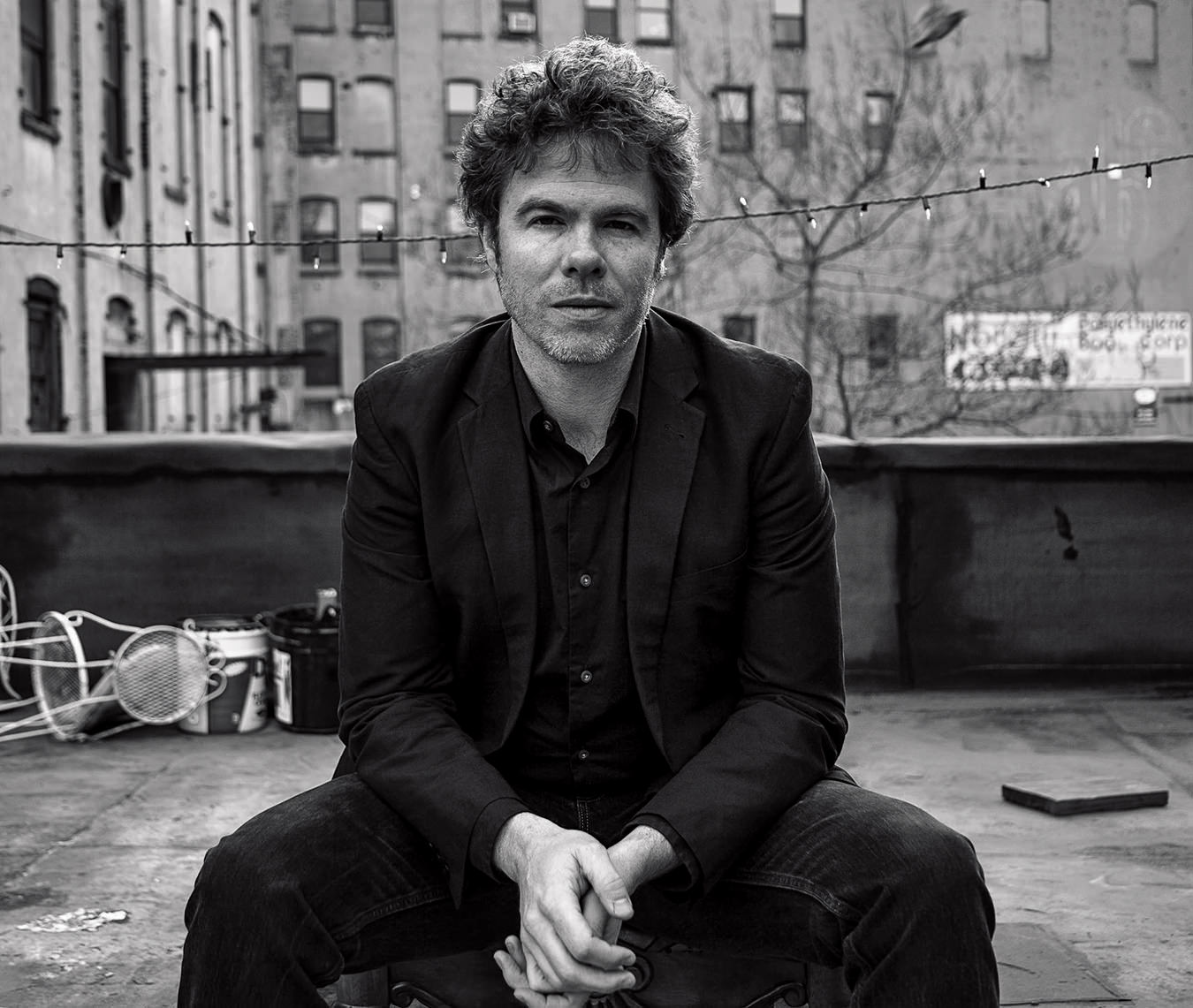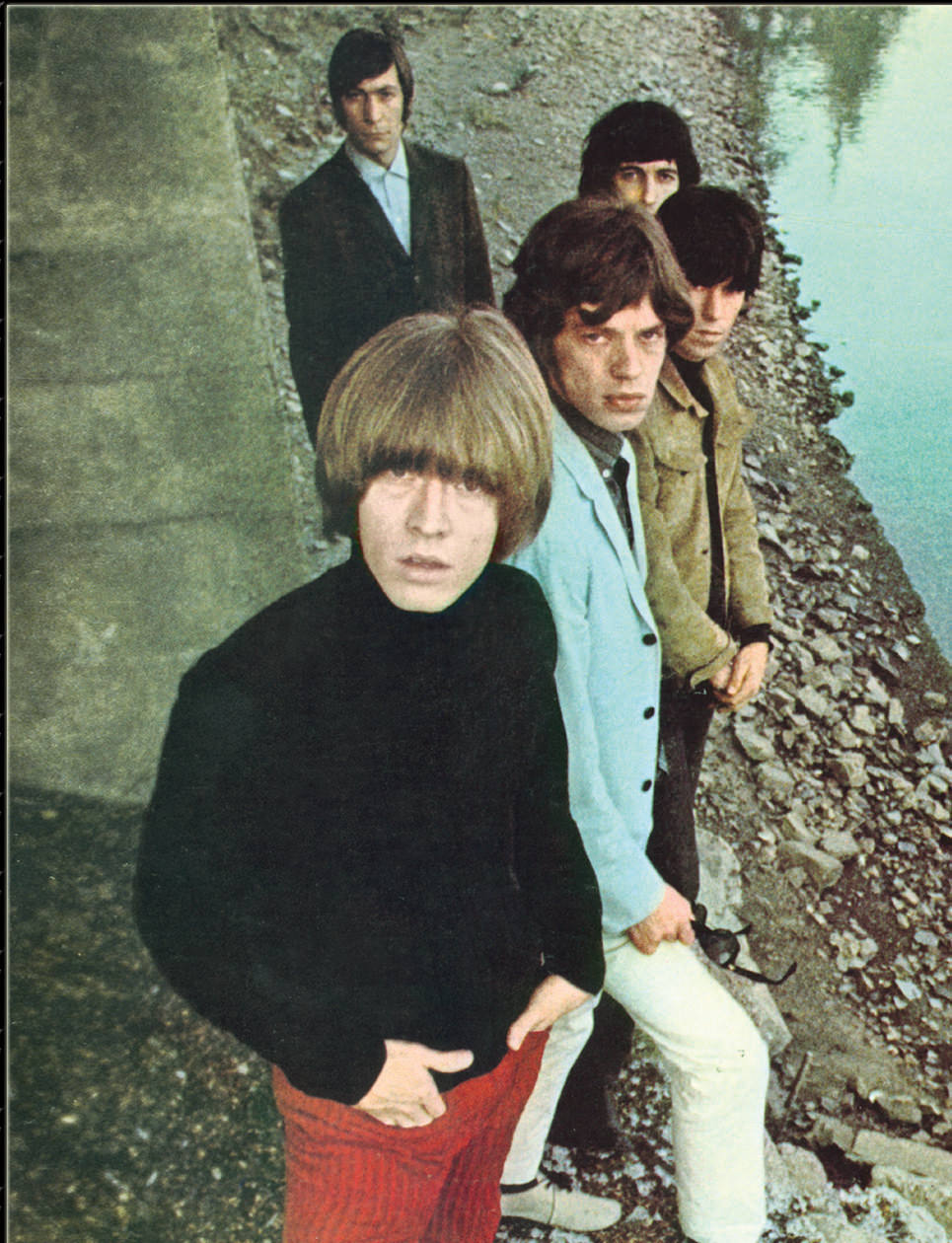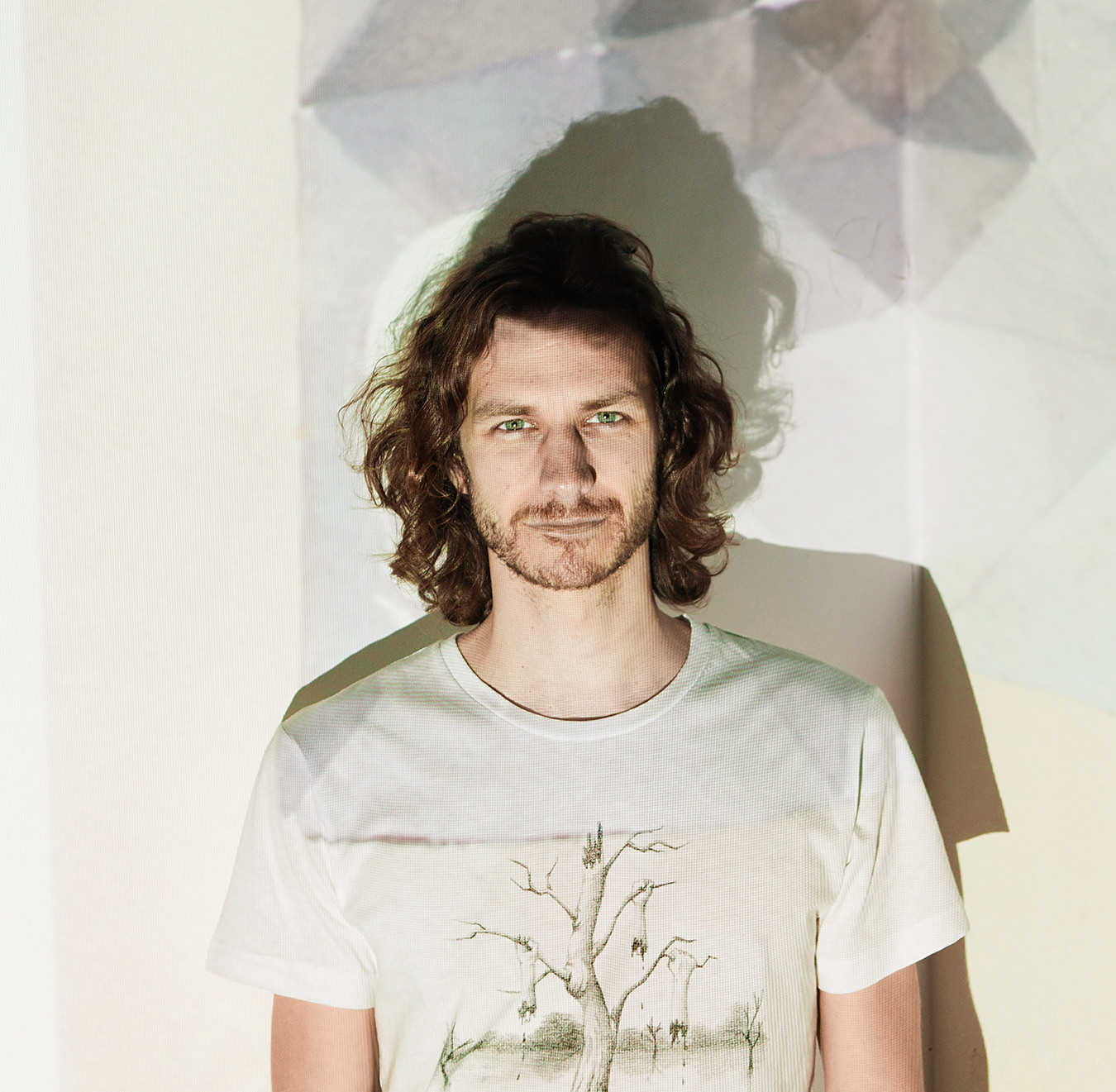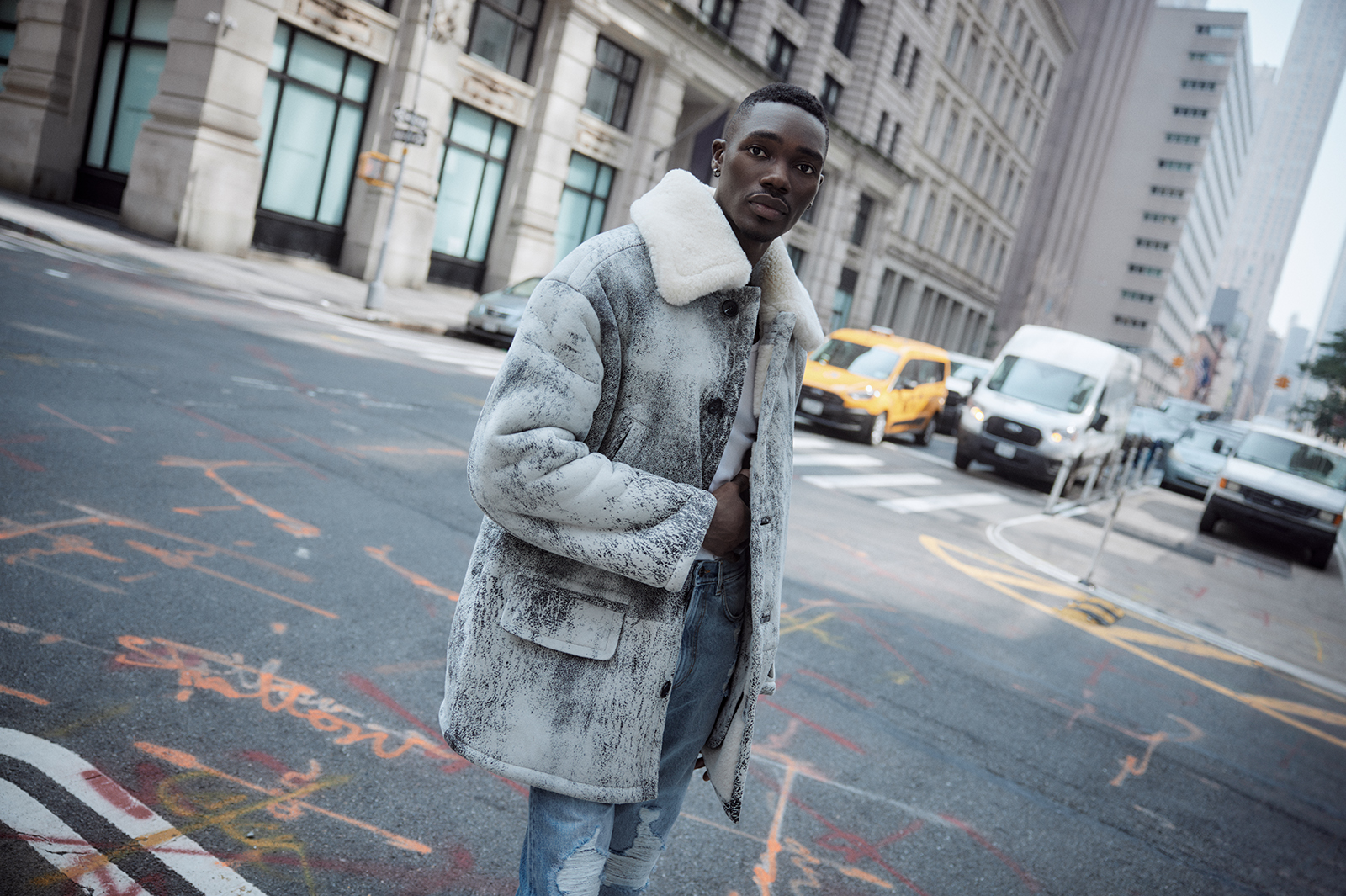
TOBi Expands His Sound
With his latest album, Panic, TOBi is making music that explores such themes as vulnerability, masculinity, and countering negative Black stereotypes across kaleidoscopic hip-hop, jazz, Afrobeat, R&B, and classic soul.
TOBi’s car had been broken into. It was close to the start of the pandemic, and the artist had his car parked on the street in Toronto. The passenger side window was smashed, glass shattered everywhere. It was upsetting, of course. But TOBi took things in stride, sharing a post on Instagram with the following: “They can never break us. I was pissed off when this car got broken into, but then I realized they only did it outta survival.” He accompanied the post with “Flatline,” a song from his new album, Panic, that he has described as being about transforming pain into power.
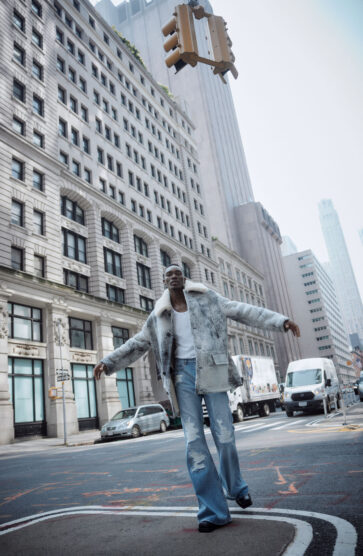
Coach jacket and jeans; tank top stylist’s own; Marni boots; earrings TOBi’s own.
TOBi lives and creates with a sense of empathy for the human condition—a mindset that takes stock of what lies deeper in the details. Perhaps A. Harmony summed it up best when she wrote for Exclaim! that TOBi’s “goal isn’t to mask justified sadness, rage or grief, but to incorporate it into the fabric of his existence, to use it as a catalyst for growth and a reason to embrace every triumph.”
This comes through in what TOBi calls his unapologetic soul music, where he explores such themes as vulnerability, masculinity, and countering negative Black stereotypes across kaleidoscopic hip-hop, jazz, Afrobeat, R&B, and classic soul. He lays it out on the title track of his 2021 EP, Shall I Continue?: “I call it soul music cuz it come from it / I put my soul thru it I been growing from it / I built a safe space for the real / To air out they feelings and still kill.” The EP won a Juno Award, on the heels of a win for his 2020 full-length Elements Vol. 1 (which was also shortlisted for the Polaris Music Prize).
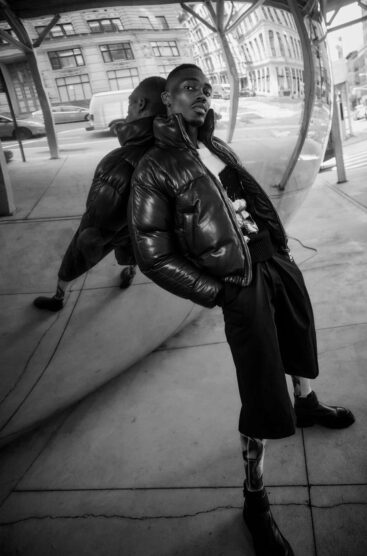
Alexander McQueen look; earrings TOBi’s own.
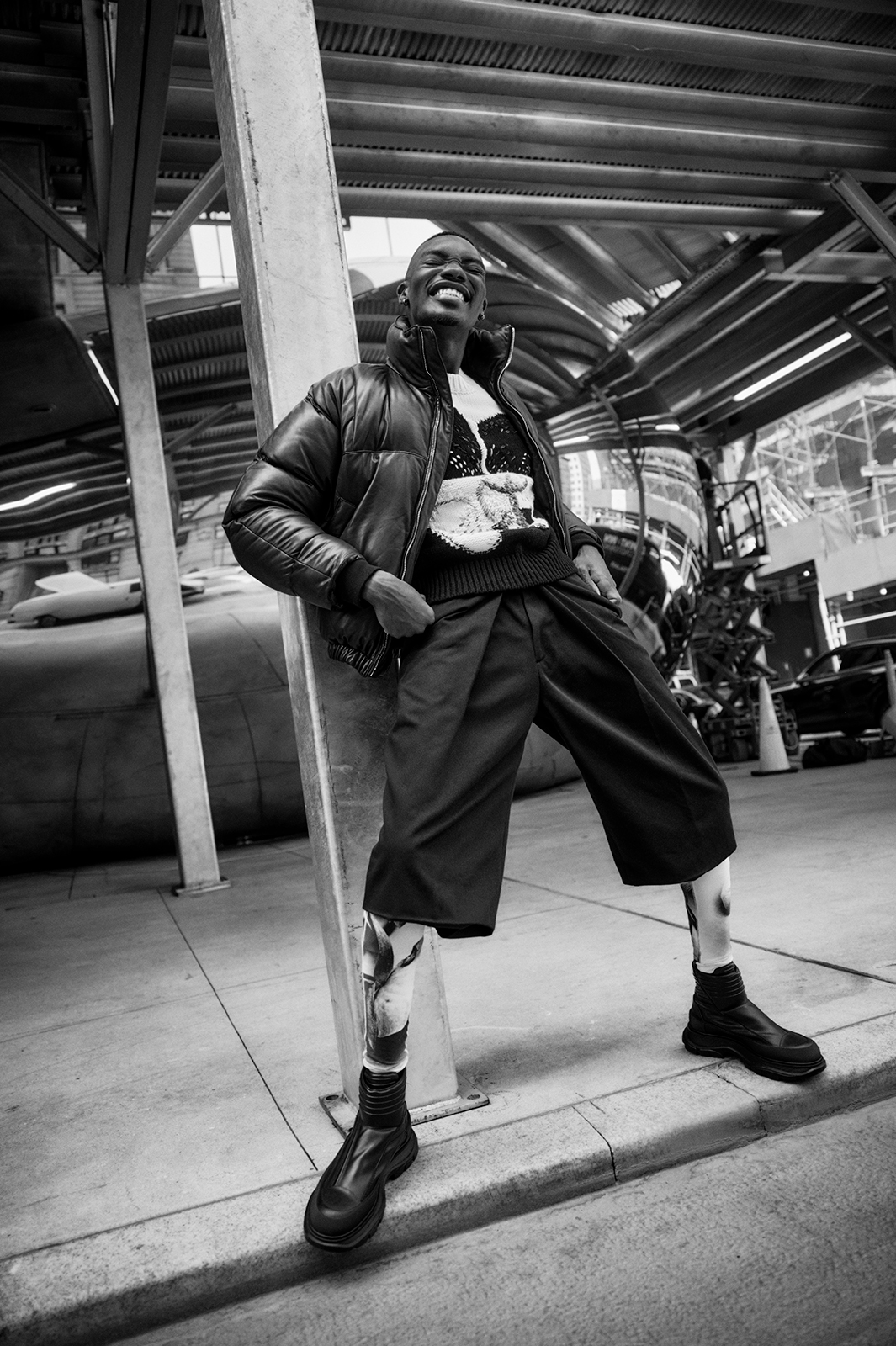
Alexander McQueen look; earrings TOBi’s own.
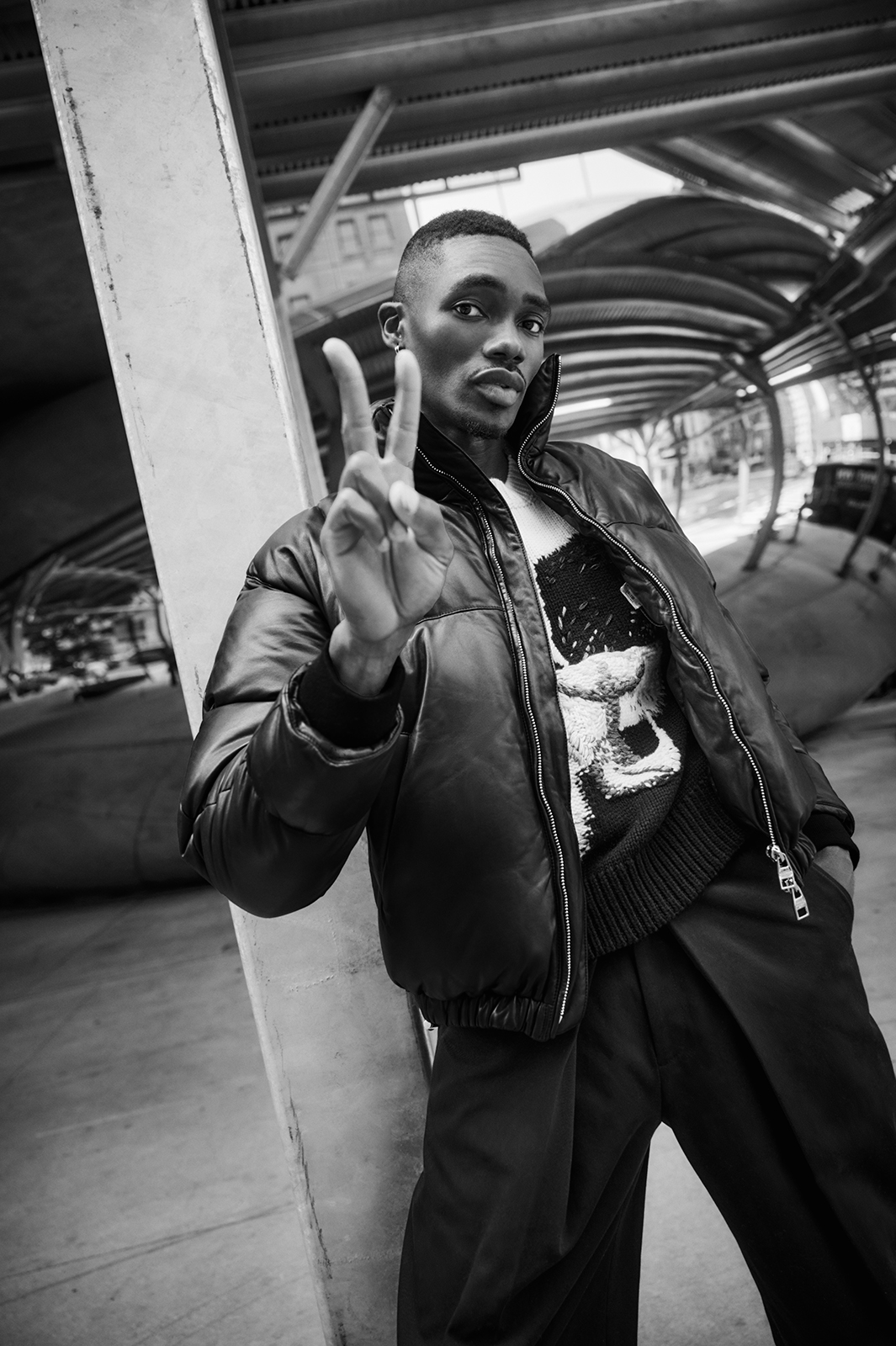
Alexander McQueen look; earrings TOBi’s own.
On Panic, released last month via RCA Records, TOBi continues to move through these themes while examining the concept of fear and how to overcome it. “My message, at the end of the day, is everything’s going to be all right,” he says. “As long as we key in to our reality right now and work together to create a more equitable world. That’s essentially the message of Panic.”
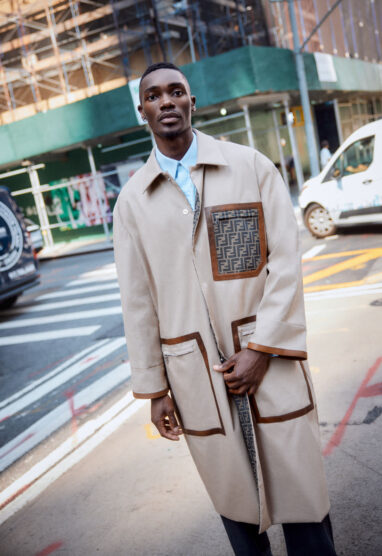
Fendi coat; Dries Van Noten shirt; JW Anderson trousers; earrings TOBi’s own.
TOBi was born Oluwatobi Ajibolade in Lagos, Nigeria. His memories of his birthplace are filled with music. “It’s interesting how strong those early memories are and what they imprint on you,” he says. “The house was always coloured with sound, and I always loved that. And I think that’s where I got the love for music.” He was exposed to soul and gospel, from greats like Luther Vandross and Al Green. Nigerian icons Sunny Adé and Afrobeat pioneer Fela Kuti. And Céline Dion. “Yo,” he adds with a laugh, “my parents love Céline Dion!”

Dior look.
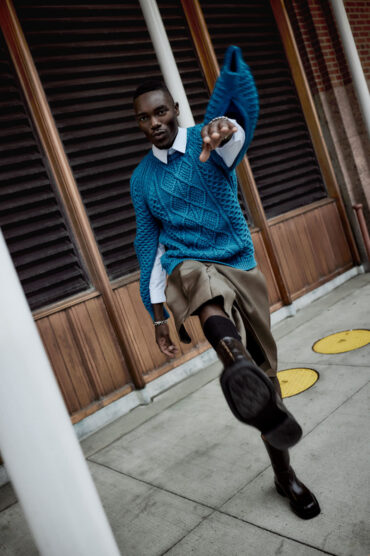
Dior look.
Music, and making it, would become an anchor for TOBi as he was growing up in Brampton, Ontario, where he moved to from Nigeria when he was nine and felt like he didn’t belong. “Everybody goes through growing pains, and trying to understand adolescence and trying to understand being a teenager,” he says. “And I think music just helped me to stay grounded and process my emotions. I think a lot of boys don’t get the space to cry, the space to lament, the space to even exude joy, because we’re told that we got to be stoic all the time. So music definitely helped me with the emotional processing of things.”
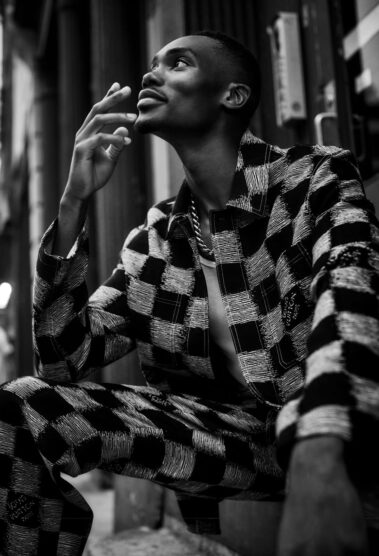
Louis Vuitton jacket and pants; tank top stylist’s own; Tiffany & Co. Forge necklace, large link.
The experience of western assimilation as part of the African diaspora, compounded with pressure to suppress his vulnerability, greatly wore on TOBi’s mental health. He suffered from anxiety and depression, and experienced panic attacks. He was eventually able to seek help through therapy. Soon enough, while studying psychology and biology at Wilfred Laurier University, he found himself drawn to mentorship work. He has been a counsellor for youth in crisis, co-founded Unpack, which offers mental health support to creatives, and recently spoke about Canadian hip-hop to students at his alma mater with fellow alum and artist Shad. “To me, youth symbolizes hope and another chance—another chance to get things right,” TOBi says.
____
“I think music is a great place to challenge our beliefs, and also to feel seen and to feel heard.” —TOBi
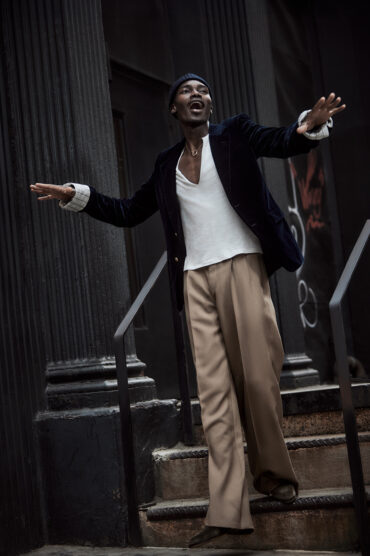
Gucci look; Tiffany & Co. Lock pendant in 18-karat yellow gold.
Panic keeps the ricochet of trauma in mind with its breathtaking opener, “Someone I Knew,” which samples an unreleased track by the UPC All-Stars written in 1971. “A young man died today / What have we to show?” the choir—a combination of original vocals layered with new backups—sings. “It was someone I knew / But he died for me and you / How much longer till we’re through?”
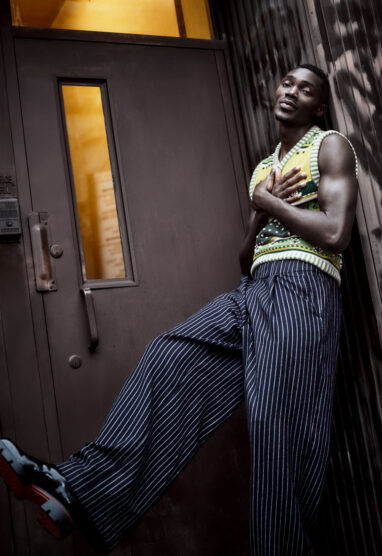
Kenzo vest, Dries Van Noten pants, Christian Louboutin shoes.

Kenzo vest; Louis Vuitton LV Volt upside down ring in 18-karat rose gold.
When the album’s producer, Alex Goose, first brought TOBi the sample, it struck him deeply. “Even though the song is 50 years old, it felt like it was made last week,” he says. “And it kind of sparked something in my brain about, what if I created a letter to myself in the past? What if I try to reconcile my memories with where I am right now and say, you know, that was somebody in the past and what have they done, what work did they do to get to me in the present? Taking agency over my past so I can direct my future.”
Most of Panic’s songs started off as such personal reflections—as poems, specifically, long before they were put to beats or any instrumentation. “I think music is a great place to challenge our beliefs, and also to feel seen and to feel heard,” TOBi notes.
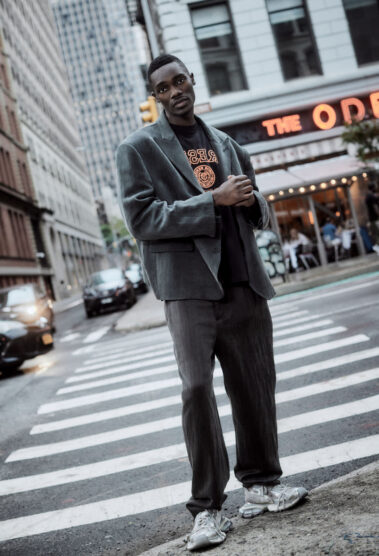
Willy Chavarria blazer, T-shirt and pants; Balenciaga sneakers.
The final track, “How Much Longer,” is a striking reprise of “Someone I Knew” that doubles down on the message of holding space for the next generation. After listening to Panic, spiritual jazz legend Phil Ranelin wrote the following lines to conclude the album: “For the children, destined to continue the endeavour of the ultimate and freedom that we seek. A tribute to the children, who now and forever represent the future of mankind.”
Is it a dedication? “I would say so,” TOBi agrees. “This is for the youth, whether it’s the literal physical youth, but also the youth in us—our inner children.”

